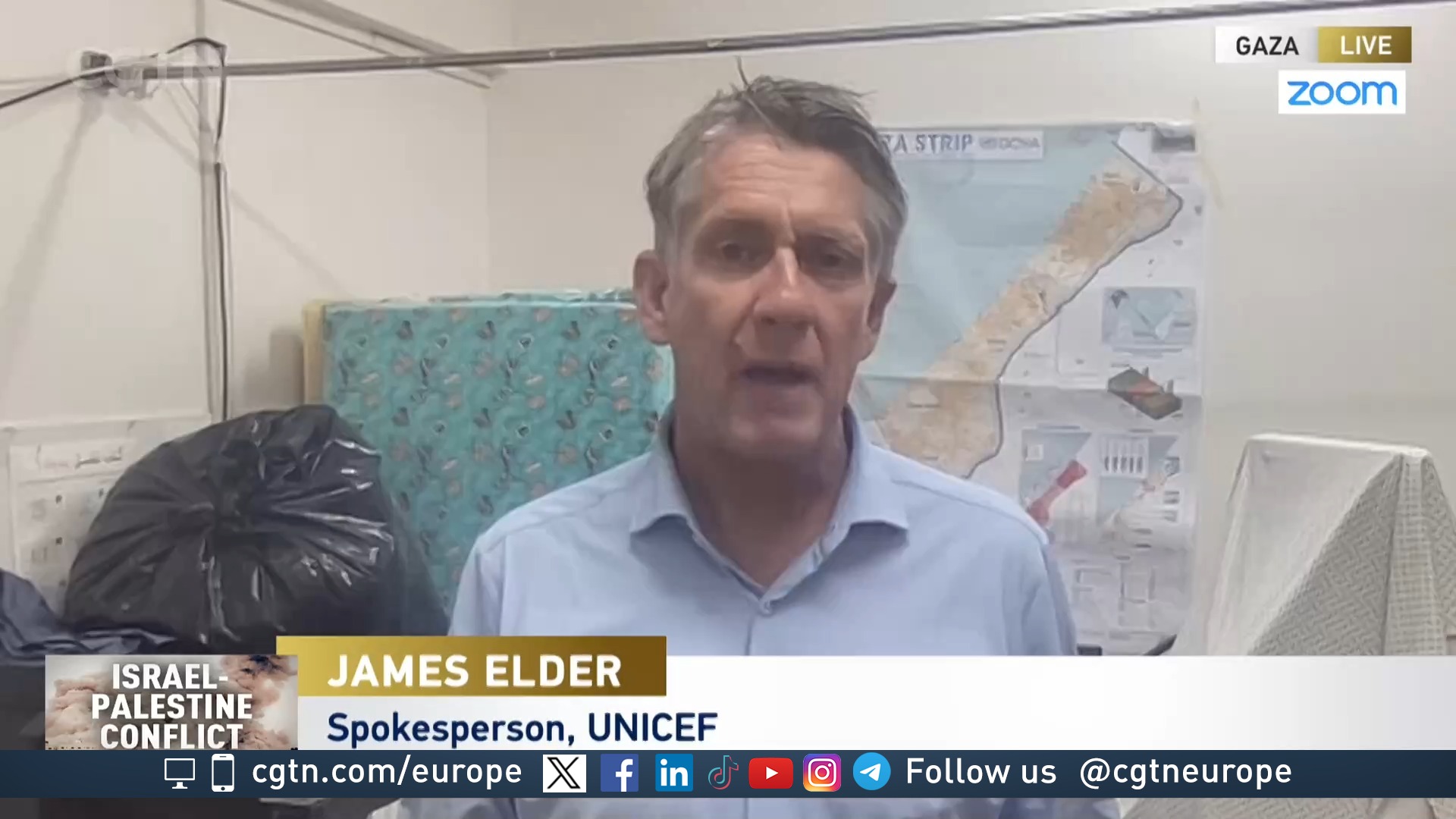05:12

UNICEF says a prolonged ceasefire is essential to prevent widespread disease among the Gaza population, among whom "every single child" now has "mental health issues."
Spokesman James Elder told CGTN the worsening conditions in the enclave were creating a "perfect storm" for disease. He spoke from Gaza as attention focused on whether mediator Qatar could negotiate another extension of the delicate truce between the warring sides.
According to Elder: "It gets cold at night now. The municipalities and government and obviously the sanitation services have broken down. UNICEF for five weeks has been warning about the threat of disease outbreaks. It's very, very real, the lack of clean water and children not getting enough food. This is a perfect storm."

Childrenfleeing north Gaza towards the south during a temporary truce between Israel and Hamas. /Ibraheem Abu Mustafa/Reuters
Childrenfleeing north Gaza towards the south during a temporary truce between Israel and Hamas. /Ibraheem Abu Mustafa/Reuters
READ MORE
What we know about the Israel-Hamas truce deal
German police raid pro-Palestinian and far right properties
Sweden threatens to deport law-breaking immigrants
Elder said aid agencies like UNICEF (The United Nations Children's Fund) were making a difference in Gaza, but desperately needed a truce extension. He said: "There remains a critical lack of water and food. These are the things that aid agencies right now are getting in, and we'll continue getting them in as long as this pause turns into a ceasefire. This cannot be just a moment in time. It has to be prolonged."
Having spent more than two decades at UNICEF, Elder is no stranger to children's suffering but he painted a particularly bleak picture of the situation in Gaza.
He explained: "It can be dangerous to make blanket statements but I think every single child in Gaza has some sort of mental health issues now. I've seen deeply traumatized children."
He added: "An hour ago I was in a hospital with a seven-year-old girl who lost her right arm, her right leg and the entire 15 minutes I was there with her she shook. I've spoken with dozens of children like this, like the 15-year-old in Khan Younis who kept pleading for her home, her bedroom, her laptop, and now she's sleeping with three siblings, while her father sleeps in the car."
Elder spoke of hospitals as "literally war zones," with emergency wards set up in car parks.

UNICEF staff members pack humanitarian supplies to be shipped from its Copenhagen warehouse. /Tom Little/Reuters
UNICEF staff members pack humanitarian supplies to be shipped from its Copenhagen warehouse. /Tom Little/Reuters
Israel has said the truce could be prolonged further, provided Hamas continues to free at least 10 Israeli hostages per day. But with fewer women and children still in captivity, keeping the guns quiet beyond Wednesday may require negotiating to free at least some Israeli men for the first time.
The Palestinian militant group Hamas and allied group Islamic Jihad freed 12 hostages on Tuesday, bringing the total released since the truce began on Friday to 81. Those have been mostly Israeli women and children, along with foreign citizens.
Elder said: "Getting Israeli children home, bringing back Palestinian children who have been detained, these are very good moments, but they have to be sustained. We cannot for a moment think that the destruction of Gaza and the killing of children is in any way going to bring peace to this region."
Subscribe to Storyboard: A weekly newsletter bringing you the best of CGTN every Friday
Source(s): Reuters